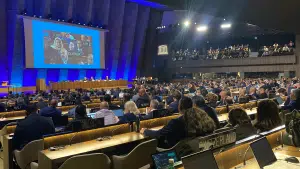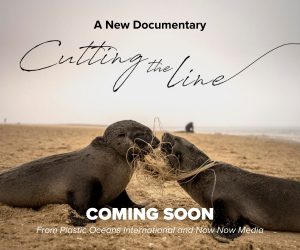Plastic pollution requires varied interventions tailored to geographical areas and stakeholders’ positions in the plastic lifecycle. Multiple stakeholders, each with unique roles, responsibilities, and accountabilities, are involved in the process. So, how can we better understand this system to start solving the problem? The key lies in a deeper comprehension of these stakeholders, their interactions, roles, and responsibilities. Only then can we come together, acknowledge our respective parts, and collectively develop effective solutions for plastic pollution.
Redefining Plastic Stakeholders
At present, negotiations are underway to create a global plastic treaty, a task involving stakeholders from the upstream, midstream, and downstream sectors. Each stakeholder plays a critical role in shaping policy, and their roles, responsibilities, and accountabilities differ widely in the strategic development of the treaty.
To successfully implement and execute policy at national and local levels, we need to foster dialogues between downstream and upstream stakeholders. These discussions are instrumental in identifying and addressing knowledge gaps and barriers while also facilitating the exchange of information and understanding. Subsequently, enabling the development of solutions that meet local needs and resources.
Find our report HERE we are presenting at the 2nd INC that aims to delineate the roles and positions of stakeholders.
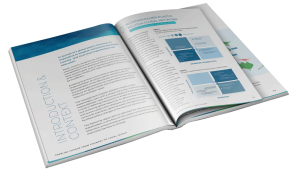
“Enabling change from country to local levels: A global strategy rests on local execution” report by Plastic Oceans International
Empowering Downstream Stakeholders Now
The urgency of curbing plastic pollution cannot be overstated. We cannot afford to wait for the treaty and the subsequent development and implementation of policies. Even in the absence of a ratified global plastic treaty, we can observe the emergence of core areas around the circular economy, plastic lifecycle management, waste management processes, problematic plastics, and the global flow of material and waste.
There’s an opportunity to start systematically addressing the knowledge gaps and barriers that could prevent the execution of policies supporting these core areas. Identifying intervention points for country policy implementation and local execution requires evaluation of stakeholders’ knowledge gaps and barriers.
A smooth and consistent flow of information from upstream to downstream stakeholders is crucial for aligning local actions with country-level targets, policies, and global frameworks.
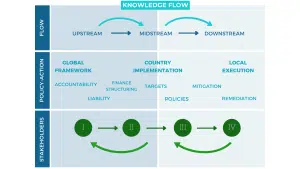
Knowledge flows upstream to downstream to enable local execution aligned with the global framework. Country dialogues flow downstream to upstream to identify barriers and intervention points to enable midstream to downstream execution.
Country-level dialogues play a key role in pinpointing barriers and intervention points. The flow of information and knowledge then helps tailor solutions that take local needs and resources into account. Our unique film-activism approach further aids this process. Supporting the flow of information needed to bridge knowledge gaps while actively involving local communities to identify barriers.
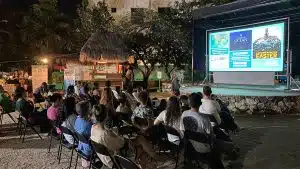
Outdoor screening of Plastic Oceans’ films followed by a community discussion to further bridge knowledge gaps and better understand the barriers they face in ending plastic pollution locally.
Julie Andersen is the CEO and Founder of Plastic Oceans International. Julie’s Plastic Oceans work combines her career protecting human and environmental health, life sciences education and love for the ocean. She has worked in public health and nonprofit management internationally for the past 20 years. Including the US, Japan, Hong Kong and Thailand.

